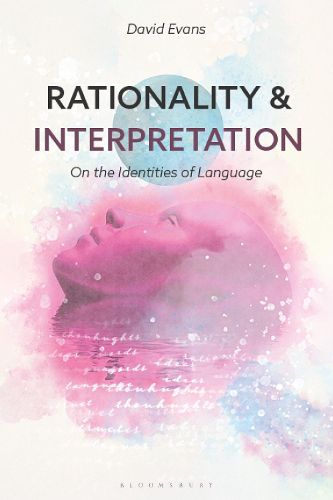Readings Newsletter
Become a Readings Member to make your shopping experience even easier.
Sign in or sign up for free!
You’re not far away from qualifying for FREE standard shipping within Australia
You’ve qualified for FREE standard shipping within Australia
The cart is loading…






Taking a unique approach which combines sociolinguistics with theoretical linguistics, this book presents a view of language and grammar as both a cognitive and socio-cultural phenomena.
Beginning with Bakhtin’s theories of conceptual grammar and lexico-grammar, this book encompasses a broad philosophical range, engaging with the ideas of key figures such as Bergson, Chomsky, Derrida and Wittgenstein. Drawing on their work, it investigates how language progresses from an inner reflection of the rational mind to develop social and ideological aspects as it interacts with culture. In doing so, it shows how identity is unitary and rational at the linguistic core whilst multiple social identities are simultaneously shaped by linguistic differences at the cultural peripheries.
Encompassing theoretical linguistics, cognitive linguistics, discourse analysis, multilingualism, sociolinguistics and semiotics, Rationality and Interpretation demonstrates how the different branches of linguistics can complement each other and highlights the socio-cultural influences of language development, as well as how language development is shaped by those influences.
$9.00 standard shipping within Australia
FREE standard shipping within Australia for orders over $100.00
Express & International shipping calculated at checkout
Taking a unique approach which combines sociolinguistics with theoretical linguistics, this book presents a view of language and grammar as both a cognitive and socio-cultural phenomena.
Beginning with Bakhtin’s theories of conceptual grammar and lexico-grammar, this book encompasses a broad philosophical range, engaging with the ideas of key figures such as Bergson, Chomsky, Derrida and Wittgenstein. Drawing on their work, it investigates how language progresses from an inner reflection of the rational mind to develop social and ideological aspects as it interacts with culture. In doing so, it shows how identity is unitary and rational at the linguistic core whilst multiple social identities are simultaneously shaped by linguistic differences at the cultural peripheries.
Encompassing theoretical linguistics, cognitive linguistics, discourse analysis, multilingualism, sociolinguistics and semiotics, Rationality and Interpretation demonstrates how the different branches of linguistics can complement each other and highlights the socio-cultural influences of language development, as well as how language development is shaped by those influences.